- The Bottom Line, Up Front:
- The Case for Online Notarization - Why Do Professionals Need It?
- Platform Experience
- Pricing Structure
- Identity Verification and Compliance
- Customer Support
- Security and Document Storage
- Integration with Business Workflows
- Mobile and Accessibility
- Business vs. Individual Use
- Subtle but Important Differences
- Final Verdict
Last Updated on August 31, 2025 by Ewen Finser
As a CPA, I’ve spent an embarrassing amount of time chasing down signatures, notarized forms, and legal paperwork for clients. It’s just part of the job. Whether it’s loan documents, business contracts, or compliance forms, notarization is a necessary but often time-consuming step in the financial world. Or, at least it used to be.
In the past, I relied on local banks or mobile notaries, but recently, online notary services have become my go-to. Two names I’ve spent the most amount of time trying out are OneNotary and Notarize.com.
Both allow you to meet with a licensed notary online, verify your identity, and have your documents notarized from anywhere. I’ve used both services, sometimes for my clients, other times for my own business, and while they’re both strong options, I’ve noticed some subtle but important differences.
The Bottom Line, Up Front:
Both OneNotary and Notarize.com are reliable online notary platforms that make notarization faster and more accessible than traditional in-person methods. From my experience, Notarize.com has a polished interface, but caters more toward enterprise and real estate use cases. OneNotary, on the other hand, provides a smoother experience for small businesses and professionals, with more predictable pricing, better customer support, and easier workflow integration. For one-off personal notarizations, either platform works, but I prefer OneNotary, especially for ongoing business needs.
The Case for Online Notarization – Why Do Professionals Need It?
Before comparing the two platforms, it’s worth noting why online notarization is so valuable for small businesses and professionals:
- Time savings: No need to schedule around a local notary’s availability. This is the biggest point to me, I charge a lot for my time, and it doesn’t feel like the right thing to charge a client hundreds of dollars because I had to spend an hour tracking down a notary.
- Remote convenience: Documents can be signed and notarized across states (critical when dealing with clients outside my typical service area).
- Compliance: Online notarizations are recognized in most states and follow strict ID verification protocols. I was very surprised with the robustness of the security protocols.
- Recordkeeping: Digital records are easier to store and retrieve compared to paper logs.
With that baseline in mind, let’s look at how OneNotary and Notarize.com compare.
Platform Experience
Notarize.com
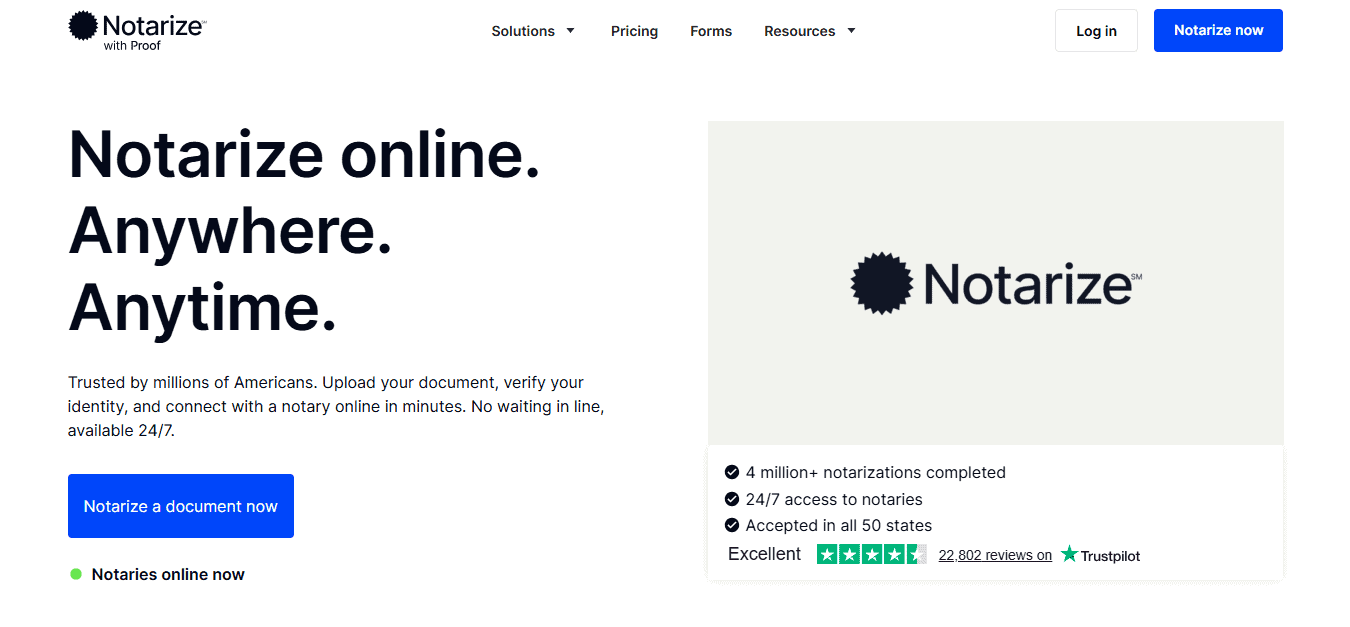
Notarize.com was one of the early players in this space and has strong brand recognition due to its age. The process is straightforward: upload your document, verify your identity, and connect with a notary by video call. In my experience, the platform feels polished, though sometimes the workflow can be a little rigid if you’re dealing with multiple signers or less common document types. I also didn’t like that I had to make an account before I could access its services, even if I needed just one thing notarized.
OneNotary
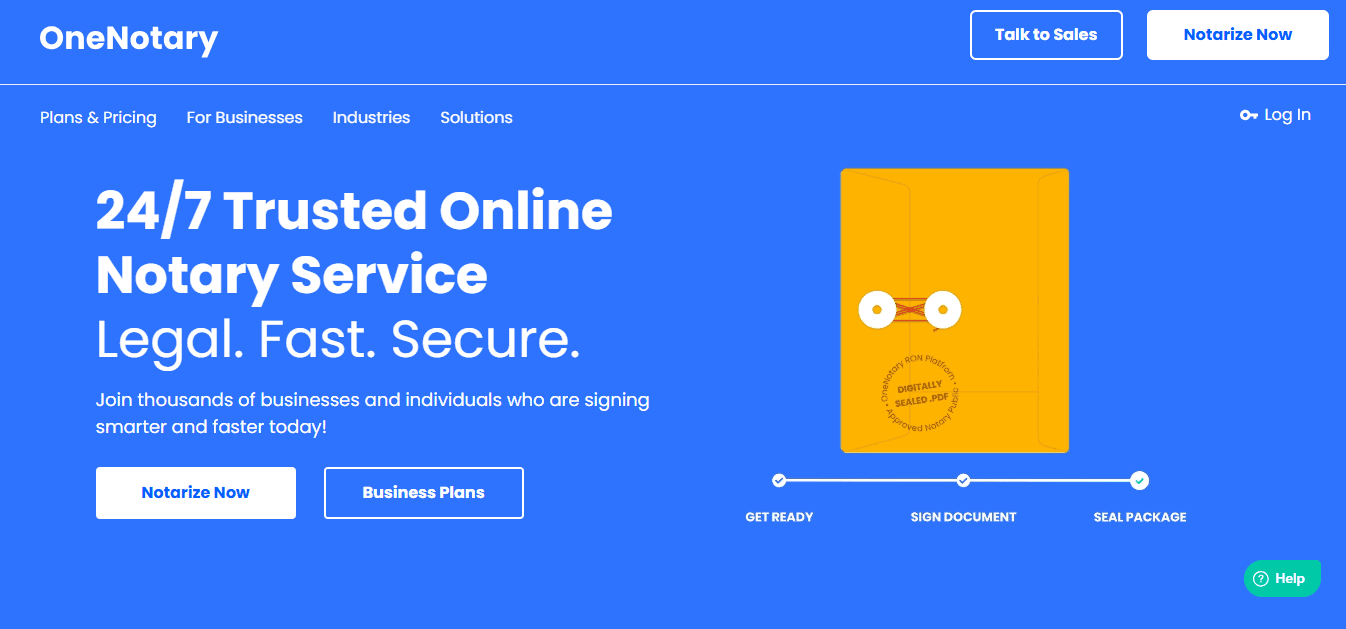
OneNotary feels just as professional, but I’ve found its interface a bit more intuitive. When I’m juggling paperwork, contracts, and IRS forms, I don’t want to spend extra time figuring out where to upload files or how to invite signers. OneNotary seems to anticipate the needs of professionals who deal with complex documentation. It’s also easy to reuse templates, which has saved me time when working with recurring forms like client engagement letters.
Quick Comparison:
- Ease of use: OneNotary edges out with a smoother interface.
- Name Familiarity: Notarize.com eeks out the win just because it’s been around much longer
Pricing Structure
Cost always matters. For individuals, the difference between $25 and $30 for a notarization isn’t huge, but for businesses that need dozens each week, it adds up.
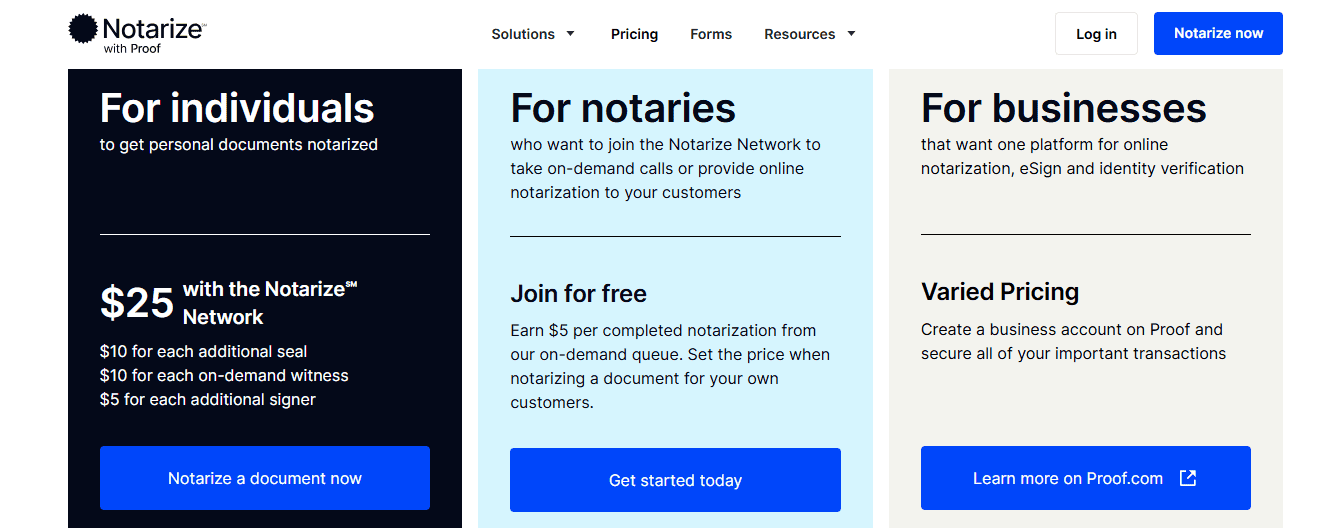
- Notarize.com typically charges around $25 per notarization. Bulk pricing is available, but I’ve found it tailored more toward enterprise-level clients, and you’ll need to talk to a sales associate to negotiate what price you’ll be receiving based on expected volumes.
- OneNotary offers competitive pricing as well, and in my experience, is more flexible for small businesses. They also provide packages that make sense if you need recurring notarizations, mobile notaries, or enterprise-level notaries, and price will adjust for each of those.
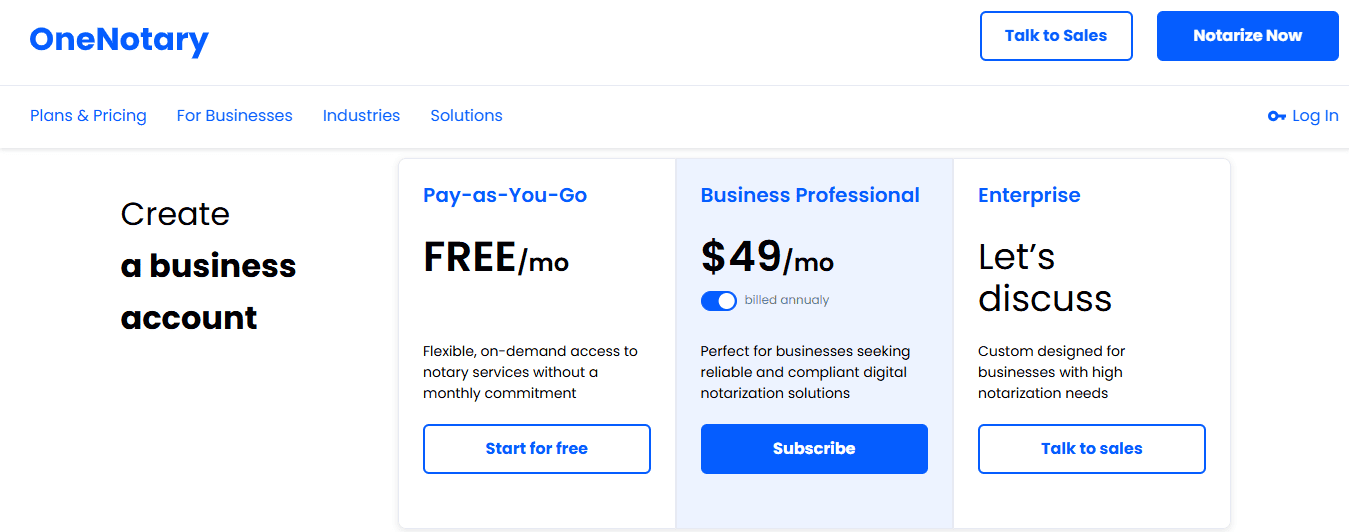
From a CPA’s lens, predictable costs matter. If I can build a line item into my firm’s budget for notarizations, I’d rather not deal with variable or higher-tier pricing structures that only make sense for Fortune 500 companies. Both firms are going to charge about the same unless you’re sending them decent volume, and at that point, it makes more sense to talk to a sales representative to see who can save you the most amount of money.
Identity Verification and Compliance
Both platforms take compliance seriously, as they should. A notarization is worthless if it’s not legally recognized.
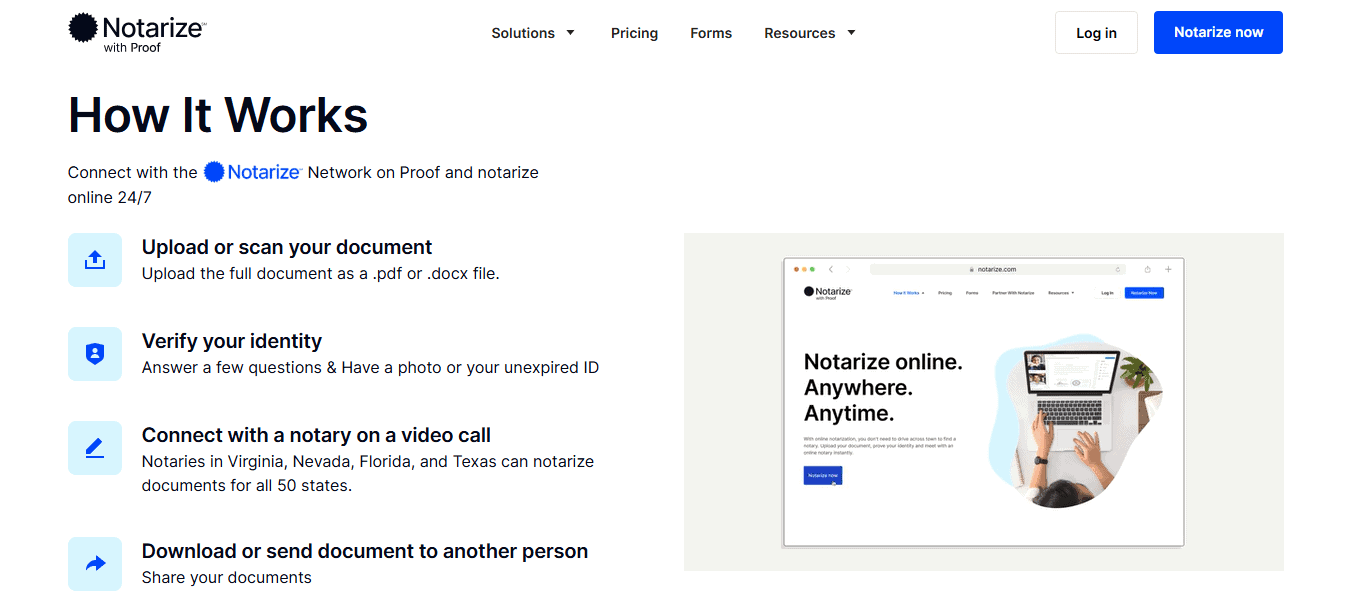
- Notarize.com uses a strong verification process with knowledge-based authentication and ID checks. I’ve never had a notarization questioned.
- OneNotary offers the same level of compliance, but I’ve noticed that their process tends to move faster. With some platforms, clients get tripped up by the ID verification steps. When using Notarize.com, I had to hold my ID up to the camera several times for it to scan everything correctly. I didn’t have that experience with OneNotary.
For a CPA, the difference between a smooth client experience and a frustrated client can make or break whether they come back next year. That subtle difference matters more than it might seem, so the easier and smoother UI of OneNotary is going to put it in the top spot in this regard.
Customer Support
This is where I noticed the clearest contrast.
- Notarize.com offers customer support, but responses sometimes feel templated. You’ll usually get your issue solved, but it may take a few emails or a wait in the queue.
- OneNotary provides more hands-on support. I’ve had clients struggle with the Notary process, and I feel like OneNotary support excels compared to Notarize.com. That level of responsiveness makes a big difference when deadlines are tight.
Security and Document Storage
I can’t afford to take chances with sensitive client data. Tax returns, loan applications, banking information, social security numbers, and estate documents all carry highly confidential information. A breach would be disastrous and could literally bankrupt me and bury me in mountains of lawsuits. I take security extremely seriously.
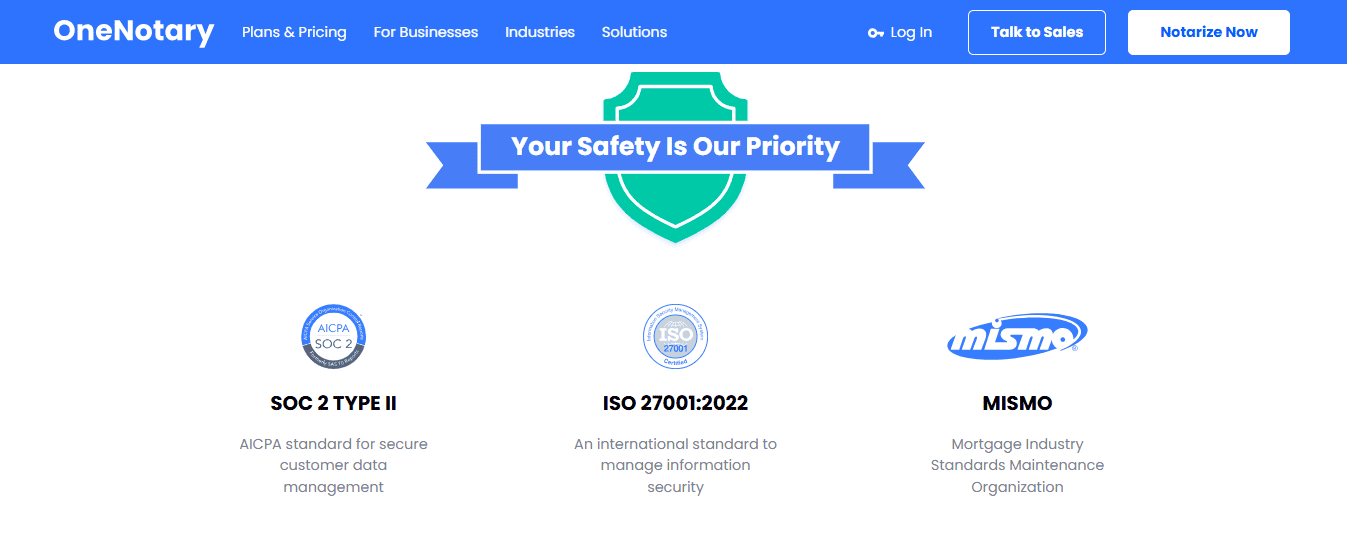
- Notarize.com has solid security practices, including encrypted video sessions and secure document storage. Their system works just fine, and I hope that I never get into a situation where I’m needing to review security.
- OneNotary not only encrypts data but also provides easy access to previously notarized documents. For me, this is critical during audits, when I may need to retrieve supporting documents quickly. Having everything organized and retrievable without digging through multiple folders saves real time.
When you’re audited by the IRS, it’s not enough to know something is filed “somewhere.” You need instant access, and that’s where I’ve found OneNotary more reliable.
Integration with Business Workflows
Another key difference is how each platform fits into a business ecosystem.
- Notarize.com integrates with some enterprise platforms, but many of those connections feel geared toward real estate or mortgage industries. That’s useful if you’re a title company, but less so if you’re running a CPA firm or small business.
- OneNotary, by contrast, seems more adaptable to small business needs. For instance, I’ve been able to embed it into my firm’s workflow so that staff can prepare documents, invite clients, and track progress without needing me to micromanage. It works well alongside cloud storage like Google Drive and Dropbox, where I keep client files.
This matters because not all businesses operate at the same scale. My firm doesn’t need enterprise-grade integrations, but we do need something flexible enough to streamline everyday use.
Mobile and Accessibility
I have found in my experience clients don’t always sit at a desk with a high-speed connection. I’ve had situations where a client was on the road and needed a document notarized immediately.
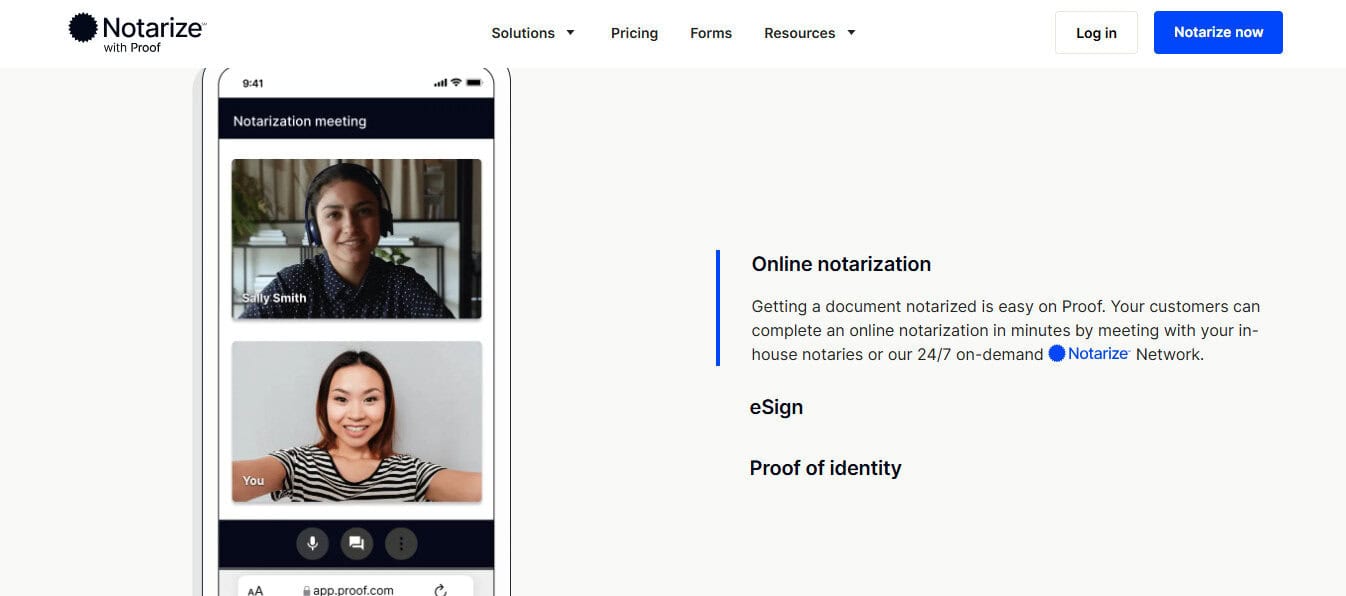
- Notarize.com has a well-developed mobile app that handles these situations decently. The interface is clean, and identity checks are consistent.
- OneNotary also works well on mobile, though it leans more on browser-based sessions. If you’re into having apps for everything, Notarize.com is probably going to be your go-to.
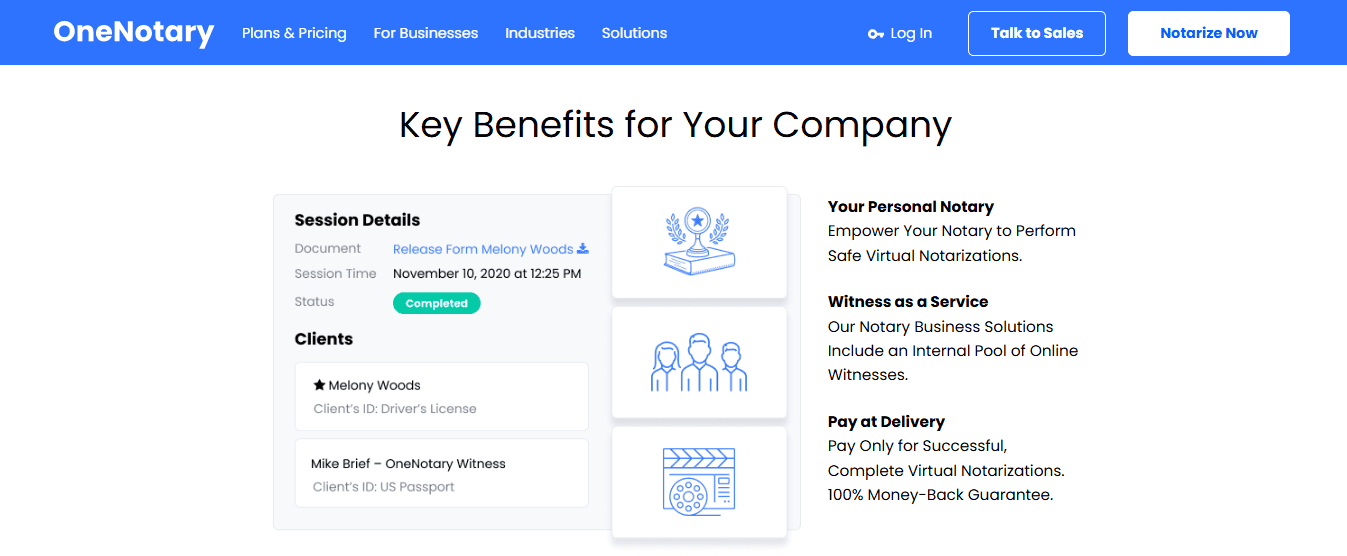
Business vs. Individual Use
Both platforms cater to individuals and businesses, but their strengths differ.
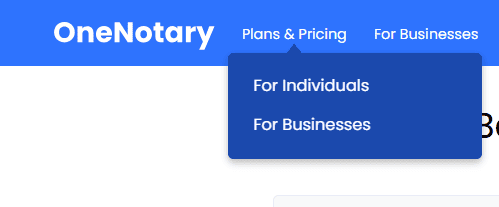
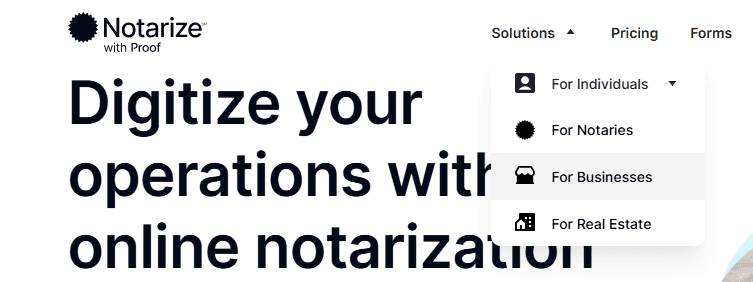
- Individuals: Notarize.com works well if you only need an occasional notarization. The straightforward flow and brand familiarity give peace of mind to folks who may not be in the world of paper pushing day in and day out.
- Businesses: OneNotary’s pricing flexibility, support, and workflow integrations make it better suited for ongoing needs that a business would use.
As a CPA, most of my interactions fall on the business side. For recurring notarizations, like IRS Form 2848 (Power of Attorney) or client affidavits, OneNotary makes it easier for me to handle repeat processes without starting from scratch each time.
Subtle but Important Differences
To summarize some of the contrasts I’ve noticed:
- Pricing: OneNotary feels more predictable for small business use.
- Interface: OneNotary is smoother for repeat workflows.
- Brand recognition: Notarize.com is more widely known.
- Support: OneNotary provides more hands-on assistance.
- Enterprise focus: Notarize.com leans toward real estate and mortgage industries.
- Flexibility: OneNotary adapts better to small business and professional needs.
None of these alone would disqualify either service. Both are reliable. But taken together, they explain why I’ve leaned on OneNotary more heavily in my day-to-day work.
Final Verdict
When clients ask me which platform I recommend, I don’t give a blanket answer. I tell them both services will get the job done. If they just need one notarization for a personal matter, Notarize.com might be the familiar option. But if they’re running a business, or if they need ongoing notarizations, I point them toward OneNotary because of its combination of pricing, support, and workflow features.
For me personally, the difference comes down to client experience. As a CPA, I know how stressful financial and legal paperwork can already be. If I can reduce even a little of that friction, it’s worth it. OneNotary has helped me do that more consistently.

